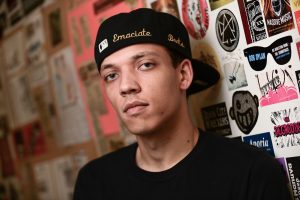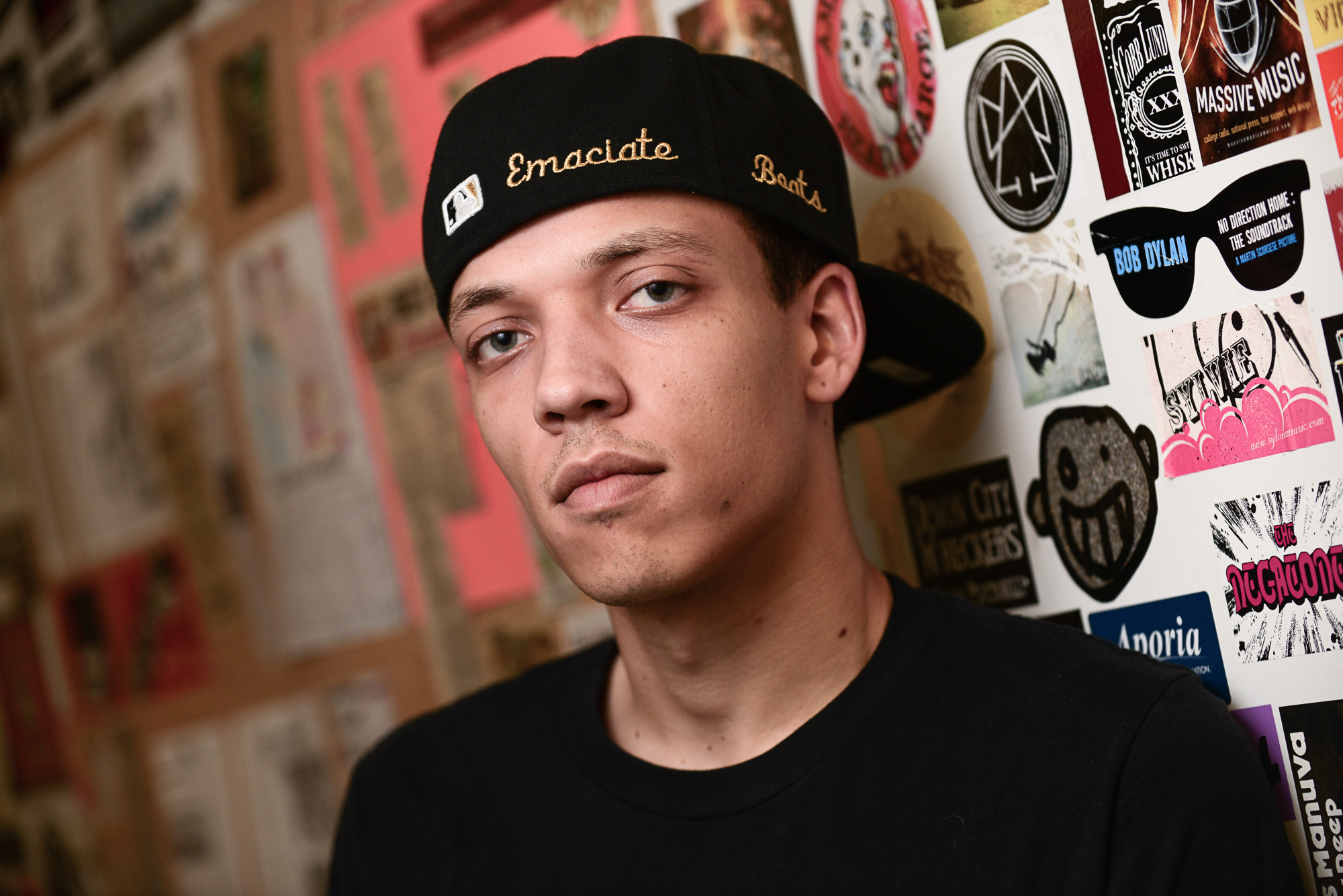
The Concordian sat down with 20-year-old journalism student Joel Abrahams who has, since his first year at Concordia, been regularly involved at the university’s radio station, CJLO, DJing around campus, as well creating his own music and producing albums.
The Concordian: So how did you get started at CJLO?
Abrahams: I started in [the] winter of my first year, in 2011. When I first started out, I was playing more mainstream electronic music and now I have moved into music that is, still electronic, but more closer to what I like to listen to.
C: What’s the atmosphere like there?
It’s a lot of fun. It’s cool ‘cause, for a university radio station, it’s well known and reputable. CJLO is highly regarded, yet it’s also very relaxed. You can more or less play whatever you want, in terms of music.
C: You were the DJ for the CSU’s Orientation BBQ event last year and you have the gig again this week. How did this come about?
The first time, they just put out a message [calling for DJ’s] and I responded to it. They came over and listened to my mix. And that’s it. This time, a person that I was in residence with is involved with them and put my name in, and I got it, since they knew me from last year.
C: How did you get started in DJing and making music in the first place?
I think people probably underestimate how difficult it is to make electronic music. I have been working on it for three years. It was a good full year before I made an actual song. Not a song you’d wanna listen to but a song nonetheless with all of the parts, sounding proper. I was definitely not enjoying that. But after a year and a half or two, it became really fun. Like, I woke up at 8 a.m. and worked on this song right up until you came here.
C: Whoa. I arrived at 5 p.m..
I know.
C: What kind of music do you make?
You know house music, right? House is 128 bpms. What I make is like 160 bpms. So it’s like a drum pattern but at a lot faster rhythm. It’s not as fast as drum bass but a little slower. It’s called footwork or juke. It started a long time ago, 20 or 30 years back, and it predates a lot of the electronic music that started to become a lot more popular. Yet it hasn’t hit the point at which people caught on to producing it to the level that it becomes sold and commercialized. What I think happened with dubstep and house music is that people were just so entrenched and focused in the one or two genres and all other ideas just completely got flushed out. For footwork and juke, it was local in its native city, Chicago, up until the ‘90s and then it spread out to other random pockets in the world. It became really popular in Japan and in parts of Eastern Europe and then, especially in the last few years, it started growing again exponentially.
C: What’s the scene for footwork and for juke in Montreal?
If you wanna focus in on that specific niche genre, Montreal is missing out, I guess. But in terms of electronic music, in Montreal or elsewhere, this is not an issue. The music I listen to, and the people listen to, tends to get passed around much more than other genres because it’s such a niche. So the scene right now is made up of people that are into the same kind of music and closely connected with the music they make, sharing it and giving me feedback on music I’ve produced. And I have become more open about giving others feedback on theirs. I think there are avenues that haven’t been tapped as well as they could have. I mean, there is one other person here [Montreal] who I was really inspired by to start focusing on this kind of music. His name is Hesk. But I think he moved to Toronto now. Nobody here really produces it and plays it live anymore.
C: That’s disheartening. Have you tried reaching out to other students on campus to collaborate?
I haven’t’ found that many people [at Concordia]. I haven’t seen anybody that makes this kind of music. Not even Trap, [which is] hip hop beats made into electronic music, which is closely related to my music but much more popular. I’m sure I am wrong, though. But hopefully [if there is] someone reading this and wants to work together, [they] can reach me.
C: For the curious, what kind of equipment are you using?
I use a digital DJ controller, right now. It’s a Numark NS6. I also use a Native Instruments Maschine. My keyboard that controls most of this stuff is the Akai Pro MPK49. And this Korg FX Pad is for effects and stuff.
C: And when you are not making your own music, where do you like to go in the city to hear music?
There are not that many places that I would like, really. If there is one place I would go to, it’s the Belmont.
C: So you are essentially saying that the best place for you to hear music, is your own home.
Yeah. I’ve got a pretty good set-up here [laughs].
Be sure to catch Joel Abrahams every Friday at 3 p.m., hosting the Death Metal Disco Show, starting next week on CJLO. You can also watch him DJing live at the CSU BBQ, Sept. 4 from 4 p.m. to 5 p.m. at the Loyola Campus.
https://soundcloud.com/
https://soundcloud.com/
https://soundcloud.com/




